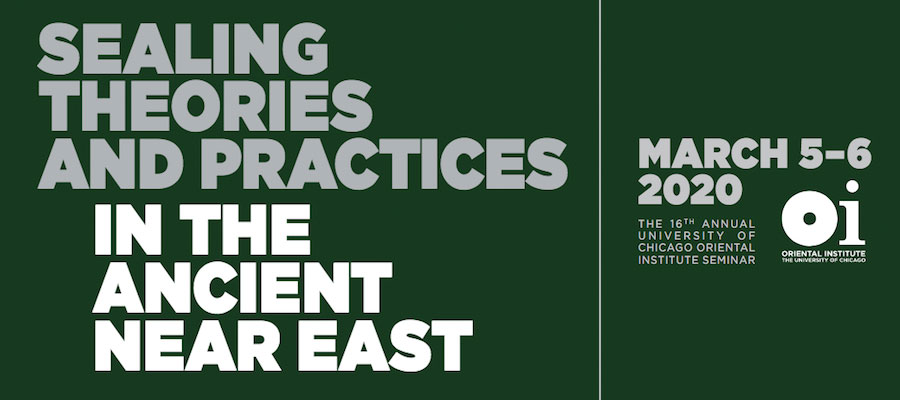Sealing Theories and Practices in the Ancient Near East, The Oriental Institute, University of Chicago, March 5–6, 2020
The seal is to the ancient Near East what the social security number and the lucky charm are to our modern societies: a key element that proves one exists within an administration; an object preciously preserved because it carries identity, validity, and even magical forces. Sealing was a common practice in the ancient Near East, but the associated customs and uses across different societies varied. The study of both its shared and diverse aspects is crucial for understanding the socio-administrative functioning of ancient societies.
Through its many facets, sealing touches several aspects of ancient societies: political, administrative, sociological, cultural, and artistic. To understand this critical source of knowledge, a multi-disciplinary and multi-documentary approach is necessary. This conference therefore brings together scholars from different areas of study: from Anatolia to China and from ancient Mesopotamia to the first centuries of Islam. This spatial, temporal, and disciplinary breadth allows a more complete picture of the sources and methods of analysis available in understanding the socio-administrative practices, systems of thought, and beliefs surrounding seals and sealings
Participants: Alain Bresson (Classics, University of Chicago), Béatrice Caseau (Faculté des Lettres UFR d'Histoire, Sorbonne Université), Paul Copp (East Asian Languages and Civilizations, University of Chicago), Mark B. Garrison (Art and Art History, Trinity University), McGuire Gibson (Oriental Institute, University of Chicago), Wouter Henkelman (Section des Sciences Historiques et Philologiques, Ecole Pratique des Hautes Etudes), Deniz Kaptan (Department of Anthropology, University of Neveda Reno), Agnete Wisti Lassen (Near Eastern Languages and Civilizations, Yale University), Brian Muhs (Oriental Institute, University of Chicago), Theo van den Hout (Oriental Institute, University of Chicago), Delphine Poinsot (Oriental Institute, University of Chicago), Karl R. Schaefer (Cowles Librairy, Drake University), Torben Schreiber (Institute for Classical and Early Christian Archaeology, University of Münster), Oya Topçuoğlu (Middle East and North African Studies, Northwestern University), Tasha Vorderstrasse (Oriental Institute, University of Chicago)
